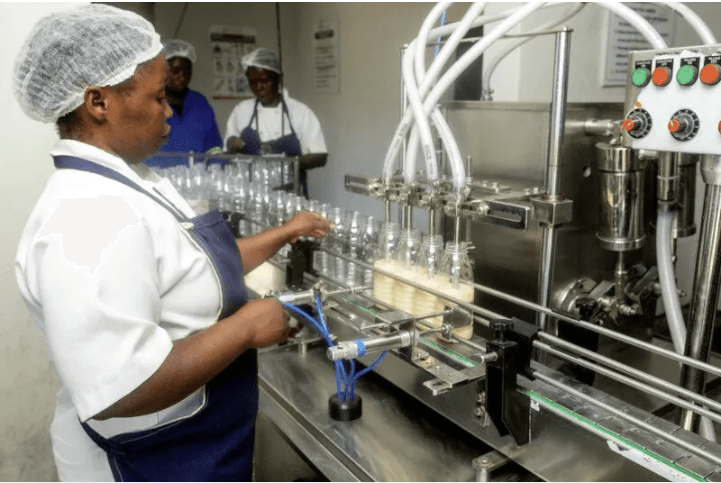
Forest Africa Zambia is an agro-processing company located in Chilanga, Zambia. The company focuses on producing juices and other products from wild fruits harvested by rural community members. Founded in 2017 by Frazer Handondo and his wife, Forest Africa Zambia aims to protect Zambia’s natural biodiversity, provide alternative livelihoods to rural communities, and build a sustainable business model.
Zambia is known for its rich biodiversity; however, it has also been identified as having one of the highest deforestation rates globally, with approximately 300,000 hectares of forests lost annually. One of the main drivers of deforestation is the lack of alternative livelihood options for rural communities. When farmers’ crops fail due to factors like drought or flooding, they often turn to cutting down trees to make charcoal for income generation.
Recognizing this challenge, Frazer Handondo saw an opportunity to address multiple issues simultaneously. By utilizing the abundant indigenous and unique fruits in Zambia, Forest Africa Zambia could protect biodiversity, provide alternative income sources to rural communities, and establish a thriving business. The company began operations in 2019, establishing a supply chain by building relationships with rural communities that had access to the relevant fruit trees, excluding protected forest land.
To process the fruits into different products, Forest Africa Zambia invested in the necessary machinery. Initially, their focus was on the baobab fruit, which they processed into various products. They also introduced ngai juice made from the African medlar fruit. The company’s factory is located in Chilanga, south of the capital city Lusaka.
Forest Africa Zambia experienced rapid acceptance of its products, particularly among smaller retail shops. The company produces around 15,000 liters of fruit juice per month, which is transported to over 200 retail shops in the Lusaka, Southern, and Copperbelt provinces. By targeting smaller retailers, the company benefits from receiving cash on delivery, ensuring consistent cash flow and helping manage overhead costs. However, Forest Africa Zambia is also working towards expanding its presence in larger supermarket chains to leverage the marketing and branding advantages they offer.
In addition to fruit juices, Forest Africa Zambia envisions opportunities for product diversification. For instance, with the baobab fruit, the company already produces juice from the pulp, extracts non-greasy oil from the seeds, and transforms the shells into eco-friendly briquettes. The residual cake left after pressing the oil could be repurposed as fertilizer or livestock feed. The company is also exploring the possibility of producing red tea rich in antioxidants from a portion of the fruit. Forest Africa Zambia has even developed vegan baobab milk derived from the seeds, although this product is yet to be commercialized. Moreover, they are piloting the production of nutritious and tasty jam from the African medlar fruit.
To ensure sustainability, Forest Africa Zambia aims to cultivate its own fruit trees in the future. While local competitors are emerging, Frazer Handondo believes there is still significant room for domestic growth before considering regional expansion. The company is also evaluating the potential for cross-border expansion into neighboring countries like the Democratic Republic of Congo or Angola.
One of the major challenges for Forest Africa Zambia is working capital. Borrowing costs in Zambia are high, ranging from 20% to 30%, making it difficult to secure affordable financing. To overcome this hurdle, the company reinvests as much of its profits as possible back into the business. However, Frazer Handondo recognizes that finding the right investment or equity partner would significantly propel Forest Africa Zambia to the next stage of growth.
Despite the challenges, Forest Africa Zambia continues to make strides in promoting sustainable agro-processing and providing economic opportunities for rural communities. Through its innovative business model and focus on wild fruit processing, the company contributes to biodiversity conservation and the development of alternative livelihoods in Zambia.
Stay updated with the latest farming tips and agriculture industry news from Africa by subscribing to our newsletter. Don’t miss out on valuable insights and updates. Follow us on Twitter, LinkedIn, and Facebook to join our farming community and stay connected with us.



















Leave a Reply